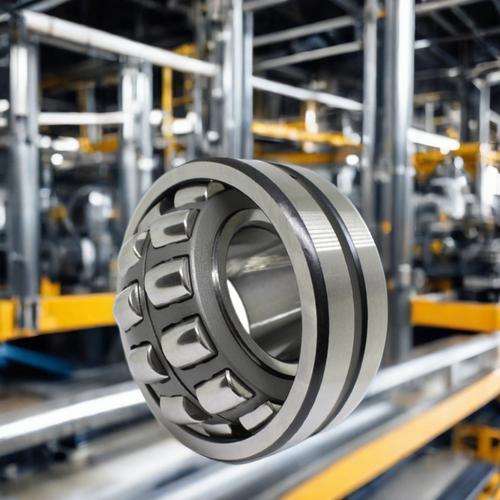Global Bearing Distributors: 5 Key Factors to Consider When Choosing International Suppliers
Global bearing distributors play a pivotal role in connecting manufacturers with high-quality bearings worldwide. These specialized suppliers ensure industries like automotive, aerospace, and manufacturing obtain precision components that meet international standards. Choosing the right distributor requires evaluating factors such as product range, certifications, and global logistics capabilities.
1、top global bearing distributors 20242、how to choose bearing distributors
3、international bearing suppliers list
4、bearing distributor certification standards
5、benefits of global bearing distributors
1. Top Global Bearing Distributors 2024

The bearing industry continues evolving with leaders like SKF, NSK, and Timken dominating global markets. These top 2024 distributors distinguish themselves through extensive inventories covering radial, thrust, and specialty bearings. Modern distributors now offer digital catalogs with real-time stock updates and 3D product visualization. Regional leaders in Europe and Asia have strengthened cross-border logistics networks, enabling 72-hour delivery to 90% of industrial zones. Sustainability initiatives are becoming crucial, with 68% of top distributors adopting carbon-neutral shipping options. When evaluating suppliers, verify their partnerships with OEM manufacturers and check for authorized reseller certifications.
2. How to Choose Bearing Distributors
Selecting optimal bearing distributors requires analyzing technical support capabilities and quality assurance protocols. Prioritize suppliers with ISO 9001:2015 certification and industry-specific approvals like AAR M-1003 for railway applications. Evaluate their failure analysis services – leading distributors provide wear pattern diagnostics and lubrication recommendations. Consider distributors offering customized kitting solutions for assembly line optimization. Payment security is paramount: verify ESCROW options and trade credit insurance availability. Always request material test certificates (MTCs) for critical applications and confirm traceability systems that track bearings from factory to installation.
3. International Bearing Suppliers List
The global bearing marketplace features specialized suppliers across key regions. European leaders like Schaeffler Group excel in high-precision aerospace bearings, while Japanese suppliers dominate automotive component markets. Emerging suppliers in India and Southeast Asia offer cost-effective solutions for mass production needs. When building an international suppliers list, include distributors with multilingual support teams and 24/7 technical hotlines. Verify compliance with regional standards – for example, suppliers serving North America must meet ABMA/ANSI specifications. Utilize trade platforms like Thomasnet and Engineering360 to compare lead times, MOQs, and value-added services across global suppliers.
4. Bearing Distributor Certification Standards
Certification requirements vary by application sector but universally include ISO 9001 quality management systems. Aerospace distributors require AS9100D certification, while food industry suppliers need NSF-registered bearings. Critical certifications to verify: ABMA/ANSI standards for dimensional accuracy, DIN certifications for European markets, and RoHS compliance for electronic applications. Leading distributors undergo third-party audits like UL certification for safety-critical bearings. Always confirm test reports for noise levels (Z1-Z4 classifications) and vibration analysis. Suppliers serving energy sectors should have API 610/ISO 10438 certifications for pump bearings operating in extreme conditions.
5. Benefits of Global Bearing Distributors
Partnering with international bearing specialists reduces procurement costs by 15-30% through bulk purchasing advantages. Global distributors provide access to proprietary bearing technologies like hybrid ceramic designs and smart bearings with embedded sensors. They maintain strategic stock buffers during supply chain disruptions – crucial for JIT manufacturing systems. Multinational suppliers simplify customs clearance through consolidated shipping and bonded warehouse networks. Technical benefits include access to regional engineering teams for installation optimization and predictive maintenance programs. Most importantly, reputable global distributors assume liability for product authenticity, eliminating counterfeit bearing risks prevalent in gray markets.
Understanding these five critical aspects of global bearing distribution helps businesses optimize their supply chain strategy. From evaluating certifications to leveraging international logistics networks, each element contributes to operational reliability. Whether sourcing standard deep groove ball bearings or specialized spherical roller thrust units, partnering with certified global distributors ensures quality assurance and technical support across the product lifecycle. Continue exploring our detailed guides below to refine your supplier selection process and maximize ROI in industrial component procurement.
In conclusion, selecting competent global bearing distributors requires thorough evaluation of certifications, logistics capabilities, and value-added services. By prioritizing suppliers with robust quality control systems and global support networks, manufacturers can ensure seamless operations and long-term equipment reliability. Always align distributor selection with specific application requirements and industry compliance standards.




 13869596835
13869596835